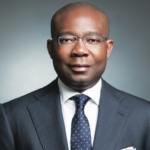The buzz word these days in health is evidence, evidence, evidence. But just what is it?
Decisions could be anything—from a lawmaker arm-twisting the executive for a new road in his constituency instead of renovating a failing health centre, to a federal hospital choosing to buy one scanner rather than repair the six it already has.
But the call for evidence has never been greater. Health advocates are increasingly looking to see how they can use evidence to back advocacy for all that ails the health sector.
Now a recondite pool of research into health systems is producing a growing body of evidence to back what advocates say—and feed into government policies even before they are made.
“My colleague often describes policy as faith-based rather than evidence-based,” says Kara Hanson, professor of health system economics at the London School of Hygiene and Tropical Medicine
“As much as possible, we want to be making important decisions based on high quality evidence about our health systems work and what works in other to shape the health systems.”
Hanson is also co-director of research at the Resilience and Responsive Healthcare System (RESYST). Funded by the UK Department for International Development, RESYST is a consortium of academic and research institutions.
To the east, Kemri Wellcome Trust research programme in Nairobi spans epidemiology, learning health systems, case management, health economics and policy. To the west, the Health Policy Research Group, HPRG, based at University of Nigeria, Nsukka, has been doing same for the last 15 years.
One of the most-studied topics is Nigeria’s health expenditure—less than 5% of its gross domestic product and never up to 15% national budget it committed to under the Abuja Declaration.
The research is around how alternative sources of finance could help increase money available for the health sector, and how better management and prioritization could put the most important issues first.
Some evidence generated from research is beginning to feed into policies, experts says. But there, first, is one drawback: they have to define what they know and what they don’t know.
The per-capita health spending situation raises “interesting questions about what we know about spending on health, says Hanson.
The evidence-digging consortium studied constraints to increasing government health spending using Lagos as case study. Lagos has been riding high on revenue but there was no clear evidence that its revenue translated to higher health spending, says Hanson. The next obvious question was how to persuade finance ministries to spend more on health.
“It is a mixed picture, but it is partly about evidence,” says Hanson, of the group’s findings. “Finance ministries want evidence that the money is going to be well spent. So there is something about enabling health ministries to get a better case for spending on health.”
What goes unspoken is about ministries under-spending and being in a position in which they can’t ask for increased allocation. Or, on the other hand, blowing their budget just to reach an acceptable implementation level—which leaves plenty of room for corruption.
Accountable spending—or the lack of it—has beset nearly all sectors of health care in Nigeria, and there is growing number of HPRG research focused on each. Research into health financing from north to south has looked at how best to purchase services. The toss up is between having the government pay or getting efficient and equitable health insurance that will ensure quality.
“It is called strategic purchasing, because a lot of time, budgets are used anyhow and at the end of the day, there is no much gain for the people,” says UNN’s Prof Obinna Onwujekwe and coordinator of HPRG.
At least one study has characterized corruption between mere embezzlement—and includes acts as absenteeism and lateness to work.
“Even the issue of going on strike and come back and get paid is also corruption plus the ones we know about like bribery. Every system that is corrupt is so inefficient and inequitable and can never achieve anything,” says Onwujekwe.
“We just have to find feasible ways to eliminate corruption. That is what our research is all about. We have done the first part about characterizing corruption. Our next step is to engage relevant actors in the health system and find out ways we can eliminate corruption. Corruption in health costs lives because health is so delicate.”
So where lies the nexus between research and evidence, and policymakers and policy.
“From the moment, we conceptualise the research, we build in the integrated knowledge translation,” says Benjamin Uzochukwu, professors of public health and health systems. He is also director of Institute of Public Health at University of Nigeria, Enugu campus.
“Because we usually involve [policymakers] in the research, the likelihood that they will uptake any evidence we produce is quite high. Even though we are producing technical evidence, getting evidence into process is actually a social issue, hence stakeholder engagement is usually the key.”
Trust, relationship, credibility of evidence and credibility of the researcher are all very important, Uzochukwu adds.
Elsewhere in Kenya, Edwine Barasa, director of the Kemri-Wellcome Nairobi programme has seen examples where working with policymakers has actually informed formulation of laws and processes.
“There is mixed finding about the use of evidence to inform policy. We find out that what is important is to work with the policymakers as opposed to researching on the system. When researchers fly into a setting, collect data, analyse and feed back to policymakers, it is always not very effective,” says Barasa.
“But when you work with policymakers to come up with questions to do the research, and to collectively think about how to interpret and use that research data for informed policy, then it tends to enhance the translation of research to policy.”
Daniel Ogbuabo straddles both worlds of research and policy: he is a health systems specialist and chairs a health committee in Enugu state legislature.
“I’m a health system specialist and basically, health system development will require evidence. Health system researchers are primarily those who generate the evidence,” Ogbuabo says.
“You cannot develop policies and expect them to be effective if they are not based on the context of that particular environment. It is important that these evidence produced should be translated into policy and practice.’

 Join Daily Trust WhatsApp Community For Quick Access To News and Happenings Around You.
Join Daily Trust WhatsApp Community For Quick Access To News and Happenings Around You.

